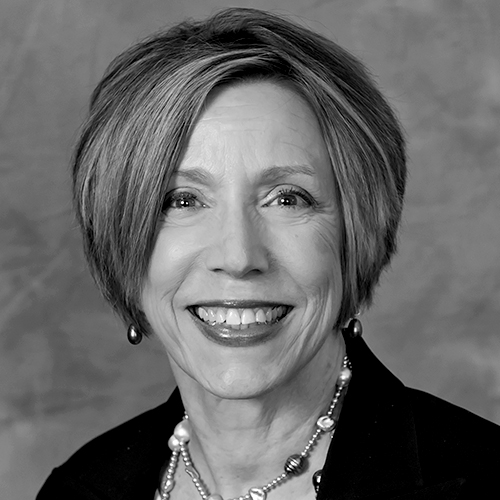On December 19, 1917, the Montreal Canadiens faced off against the Ottawa Senators, and the Toronto Arenas played the Montreal Wanderers, marking the first two games in the history of the National Hockey League. Both Montreal teams notched victories, with thousands turning out to witness the birth of a new professional sports league. And though other leagues have come and gone, the excitement for professional hockey hasn’t faded. Now, on the hundredth anniversary of the NHL, deputy commissioner Bill Daly beams with pride at the experience and celebration he’s been able to share with the fans. “We’re in rarefied air, as the second-oldest professional sports league in North America,” the legal leader says. “When you get to celebrate a birthday like one hundred, with all the centennial activities and content we’ve built out around it, it really makes us appreciate the history of this sport and you feel a lot of pride.”
Fittingly, this milestone occurs as Daly celebrates one of his own: twenty years with the league. Although he credits the stability of the league and his longevity with it to longtime colleague commissioner Gary Bettman, Daly’s been a perfect fit for the NHL. He’s provided valuable guidance to the league as it’s driven toward this monumental achievement.
Daly grew up a fanatical supporter of the New York Rangers, watching games with his father in northern New Jersey. And though there wasn’t a lot of ice available, he did what he could to find some time on skates. “We did have lakes and ponds that froze over, and my town had a youth hockey program that built an outdoor rink,” he says. “There was access to hockey, but it just wasn’t as mature and developed as it would be today.” And while he loved hockey, he was a strong football player, too. He chased that skill and eventually played tailback for four years at Dartmouth.
In fact, he says his time as a student-athlete taught him a lot of valuable lessons that have made an impact on him as a lawyer. “College athletics teach you skills that can help you be successful in any profession, really,” he says. “It provides structure and discipline in managing your time and teaches you a lot of other values and life lessons that transcend the sport.”
Once his collegiate playing career was over, Daly knew he wanted to remain connected to sports. While completing college and then law school at New York University, he began working at Skadden, Arps, Slate, Meagher & Flom. He eventually joined the firm as a lawyer. During his time there, Daly began working with major sports organizations, such as the National Football League, National Basketball Association, and eventually the NHL. “I was very, very fortunate,” Daly says. “That type of work is in high demand and in fairly low supply.”
Although positions in sports organizations he was working with are often in equally low supply, Daly passed on a few jobs before the NHL eventually made him an offer he couldn’t refuse. His predecessor at the NHL, Jeff Pash, had decided to move on to a similar role at the National Football League, and Daly’s name came up in the conversation for potential replacements. “I hit it off with the commissioner and other senior management at the League and was offered the position,” he says. “It was a fairly easy decision for me.”
Daly came in as the senior-ranking legal advisor to the commissioner in 1997. That role offered him a chance to be involved in all major policy decisions affecting the League’s business—including the 2004-2005 labor negotiations that ultimately resulted in a new economic system and revolutionary rule changes that provided a platform from which the sport could grow to new heights. Over time, Daly’s role continued to grow and evolve, and in 2005, he became the NHL’s first deputy commissioner—the most senior and principal advisor to the commissioner. In his twenty years with the League, Daly has been involved in countless major decisions that have brought considerable success to the NHL.
“When you get to celebrate a birthday like one hundred, with all the centennial activities and content we’ve built out around it . . . you feel a lot of pride.”
In 2014, he received the Lester Patrick Trophy, an award presented by the NHL and USA Hockey since 1966 to honor individuals who contribute outstanding service to ice hockey in the United States. Named after a longtime player and coach of the New York Rangers who helped develop the sport in the United States, it’s one of the highest honors awarded to players, coaches, officials, and others involved in the sport of hockey. “There are so many legendary names in our sport that have been recognized through that award, and I feel fortunate that my role put me in a position to be considered,” he says. “In my view, it’s really a reflection of the work of the organization as a whole. I view it more as an organizational award than a personal award.”
That feeling isn’t just modesty. Since his time as an athlete, Daly has come to understand and appreciate the value of teamwork and mentorship. He credits the success of the NHL during his tenure to the efforts of the entire team—both at the League and club level—and notes that it all trickles down from the vision, leadership, and passion of commissioner Bettman. In fact, Daly lives by one of Bettman’s many philosophies: “Our role is not really a job, it’s a lifestyle.” To that end, Daly makes sure he is accessible and available to the thirty-one club constituents whenever needed.
This year, the League’s role has taken on extra significance. The NHL’s centennial celebration began with the Centennial Classic, the first outdoor NHL game held in Toronto, home of one of the League’s Original Six teams. The Toronto Maple Leafs faced off against the Detroit Red Wings, another Original Six team, which was followed the next day by the annual Winter Classic, featuring another team from that bunch, the Chicago Blackhawks, playing outdoors in St. Louis against the Blues—who are celebrating the team’s fiftieth anniversary as an NHL franchise. “When the outdoor games are elevated to the national stage, there’s a buzz that is created not only in the marketplace involved, but also throughout the hockey world,” Daly says. “I am fortunate enough to go to a lot of big events that other sports leagues do, including the World Series and Super Bowl, and I can honestly say that the excitement that NHL fans have around these games is palpable and meaningful, and makes you feel good to be associated with this sport.” The hundredth anniversary year will wrap up with another outdoor game: the NHL 100 Classic, which will feature the Montreal Canadiens and Ottawa Senators playing in a rematch of their game one hundred years prior, only this time outdoors in Ottawa.
In addition, the centennial celebration has involved the creation of tens of hours of compelling content from the league’s hundred-year history, including vignettes honoring each of the one hundred greatest NHL players. There is also a Centennial Fan Arena, a traveling, interactive fan tour that features a moving hockey museum, a pop-up ball hockey rink, a truck with a giant video screen, and of course the Stanley Cup, which together are touring through each local NHL market. “It’s a way to interact, engage with, and give back to our fans,” Daly says. “Our team has spent long hours over a number of years developing all of the content that celebrates our Centennial, and so far, we’re very proud of the results.” The magnitude and scope of the Centennial project is expensive; Daly calls it a real credit to the NHL’s board of governors and greatly admires the passion NHL clubs have for engaging with their fans.
Once the centennial celebration is over, Daly has no plans of slowing his engagement in making the NHL stronger. One major aspect of that is the League’s focus on diversity—something that has become an organizational priority. “As an organization, we recognize that diversity adds value and perspective,” he says. “Our sport is already very diverse—more diverse than many recognize—and I think we’re working very hard to make it even more diverse over time, both on the ice and off.”
Another major project is the NHL’s recent expansion to Las Vegas with the League’s thirty-first franchise, the Vegas Golden Knights. Although further expansion would not necessarily mean more NHL teams, continuing to expand the sport and making it more accessible to more people is one of Daly’s priorities. “We’re continuing to expand in terms of making NHL hockey more available, not only in this country, but in other countries as well,” he says. “We were in China recently announcing long-term plans for engagement with that market and introducing the sport of ice hockey in a region where it has only had a marginal presence before. Expanding and elevating the sport continues to be one of our primary objectives as a League.”
But, as always, Daly returns to the values of teamwork and the greater hockey community when discussing his proudest moments in the league. “The thing that provides the most pride to everybody who works here, not just myself, is to compare where the sport and the organization were when we got here, to where it is now, and where its future lies,” he says. With a strong hand like Daly’s helping guide the way, the NHL seems poised to build toward even greater success in the future.

